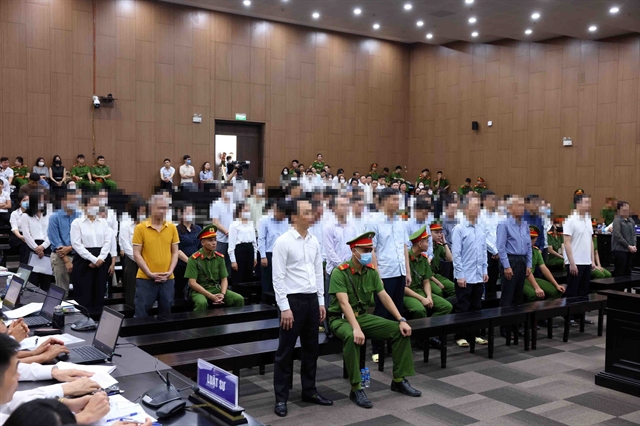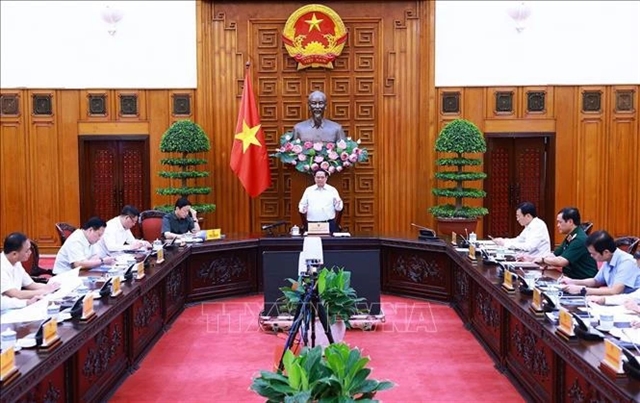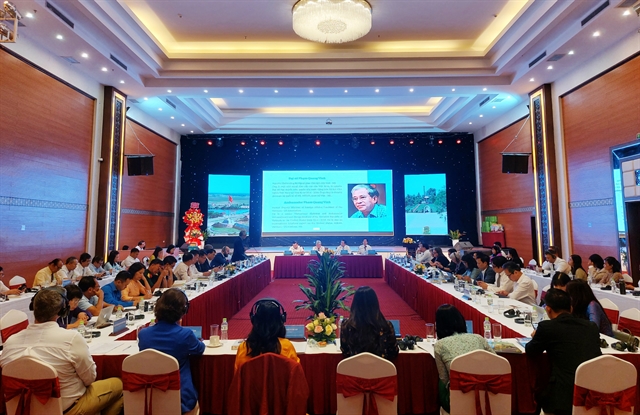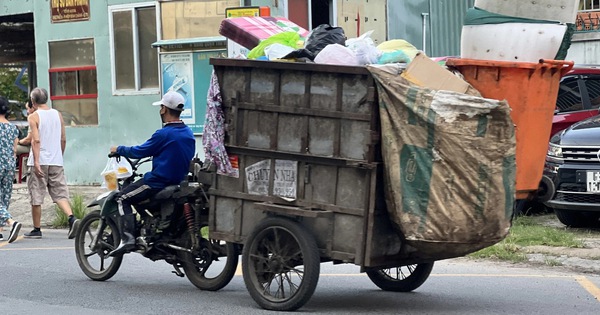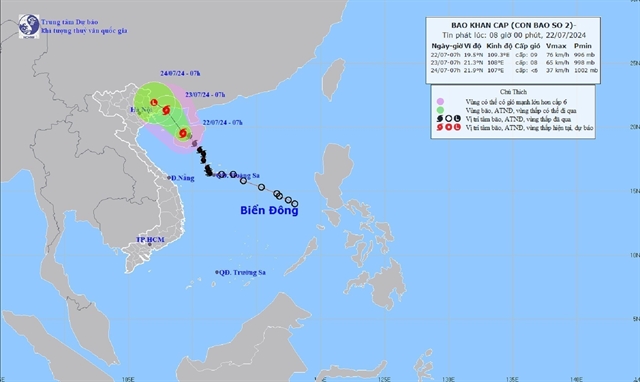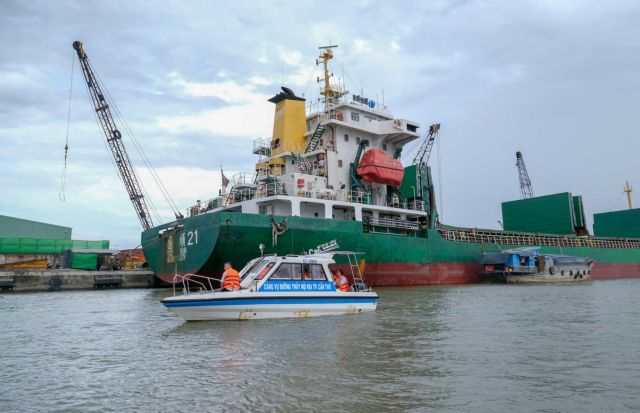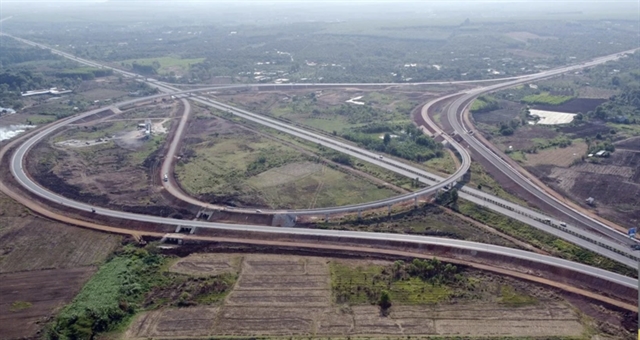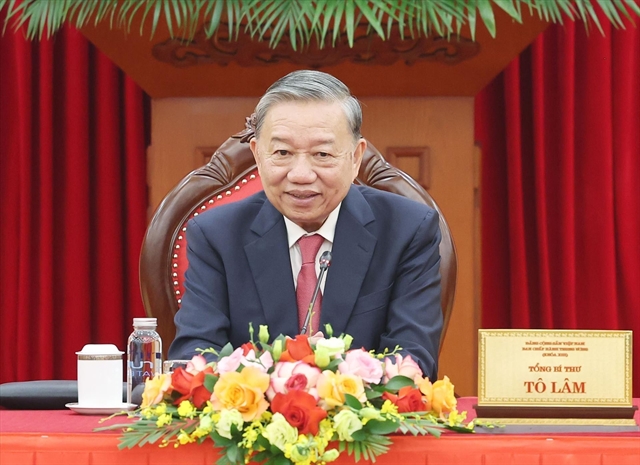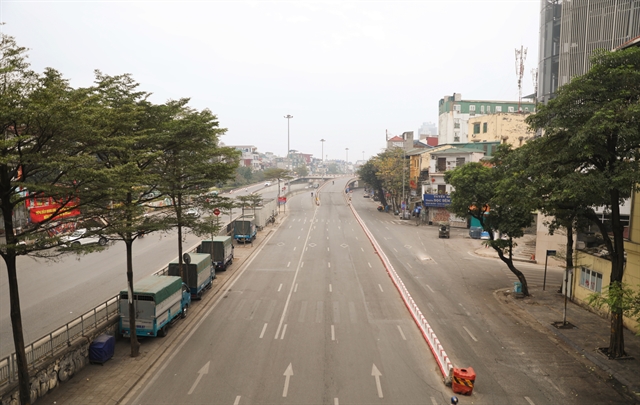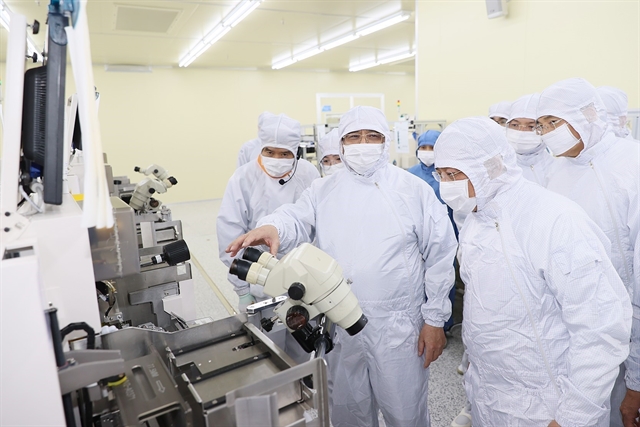 |
| Prime Minister Phạm Minh Chính (centre) visits the semiconductor chip production line of the Hana Micro Vina Co Ltd in the Vân Trung Industrial Zone in Việt Yên District, the northern province of Bắc Giang. — VNA/VNS Photo Dương Giang |
HÀ NỘI — Vocational training will focus on skilling up the workforce in the semiconductor chips, hydrogen and carbon credits fields, following a requirement of Minister of Labour, Invalids and Social Affairs Đào Ngọc Dung.
Dung said that among the upcoming key tasks, the Ministry of Labour, Invalids and Social Affairs (MoLISA) will perfect the policy and legal system to synchronously develop the labour market, improve the market intermediaries, widen the labour market information system and increase connection between workforce supply and demand.
The MoLISA will also implement policies for employees, especially social insurance, unemployment insurance and salary regulations.
At the same time, it will push up training, retraining and fostering workers to improve qualifications and vocational skills for them to enhance training for a highly-skilled workforce.
Dung requested bettering analytical capacity, forecasting job supply and demand, new and sustainable jobs and strengthen policy dialogue to build harmonious, stable and progressive relations.
The MoLISA report for the first six months this year shows that it has flexibly and effectively carried out tasks and solutions in the fields of labour and people with great contributions to the nation.
Notably, the MoLISA has completed and submitted to the Government for approval the amended Law on Social Insurance, with a very high approval rate.
Compiling legal documents generally ensures quality and progress according to the proposed plan, perfecting regulations on labour and people with meritorious services to the country.
Regarding growing the labour market and creating jobs, MoLISA will conduct solutions to maintain a stable workforce, contributing to economic development, enterprises’ production and trading.
In the first six months this year, the labour force aged 15 and over across the country was 52.5 million people, an increase of 196,600 over the same period.
Employed workers are 51.4 million people, an increase of 195,700 ones over the same period.
The unemployment rate among the working age population is 2.27 per cent, unchanged compared to the same period last year.
Measures to stabilise the foreign labour market will be intensified.
Recruiting, training and sending Vietnamese workers to work abroad under contracts will be more strictly managed.
The total number of Vietnamese workers working under contracts abroad is 78,640 ones, reaching 62.91 per cent of the plan, including 23,845 female workers.
The MoLISA will also realise the Vocational Education Development Strategy for the period 2021-30, with a vision to 2045, strengthen direction and guidance for enrollment, organise primary-level training, regular training, vocational training for rural workers, ethnic groups and the disadvantaged, among others.
As of last month, the total number of vocational education schools in Việt Nam is 1,878. — VNS
 Economy
Economy

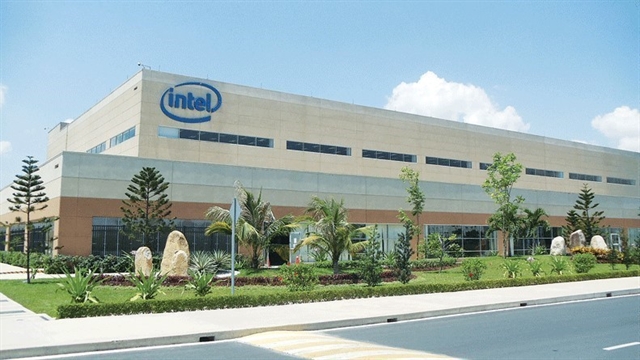

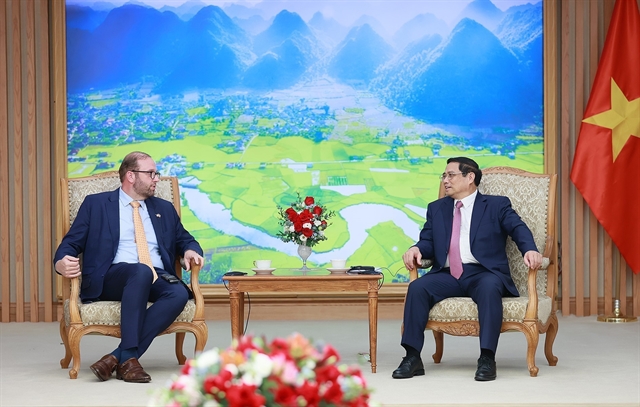
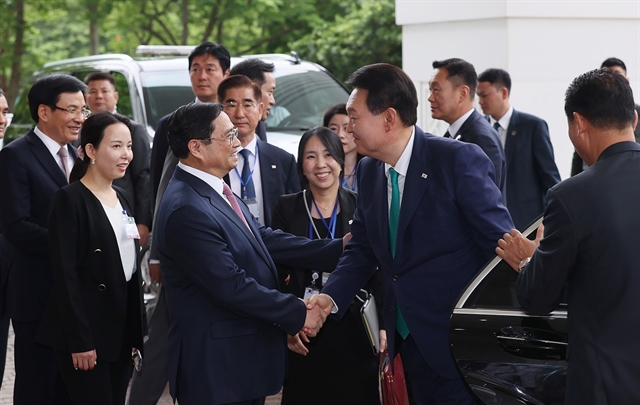






.jpg)
